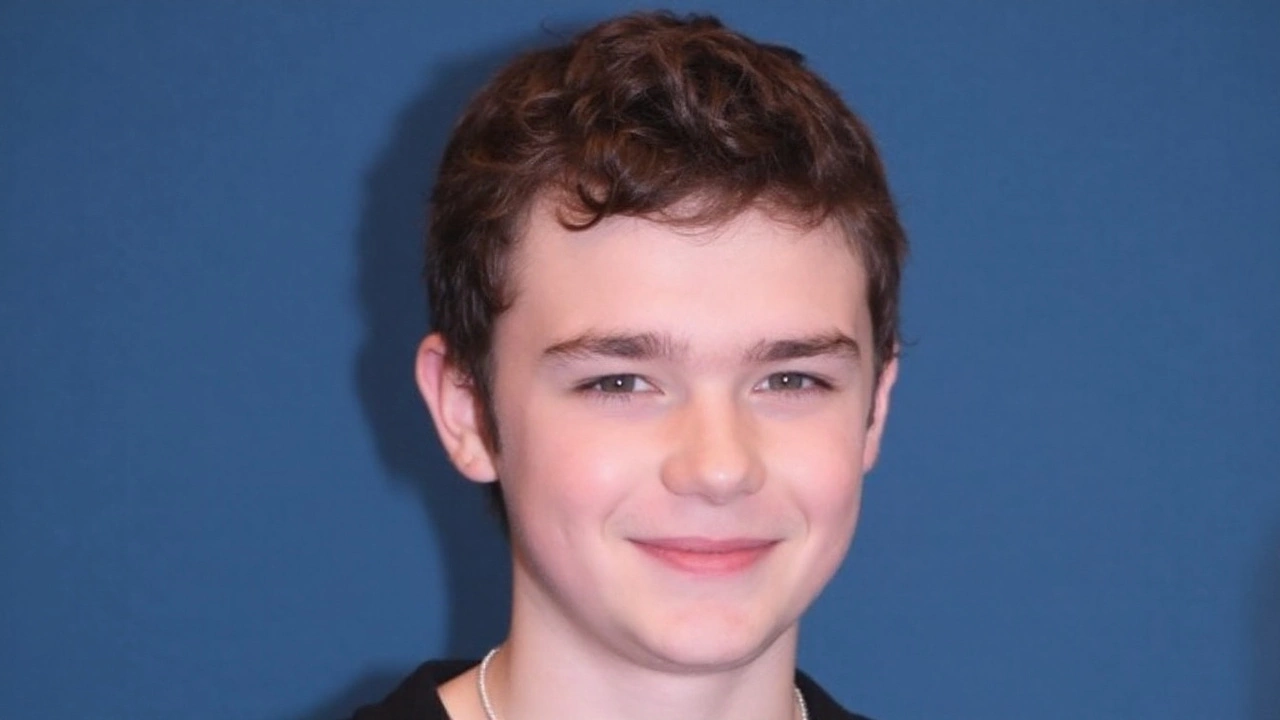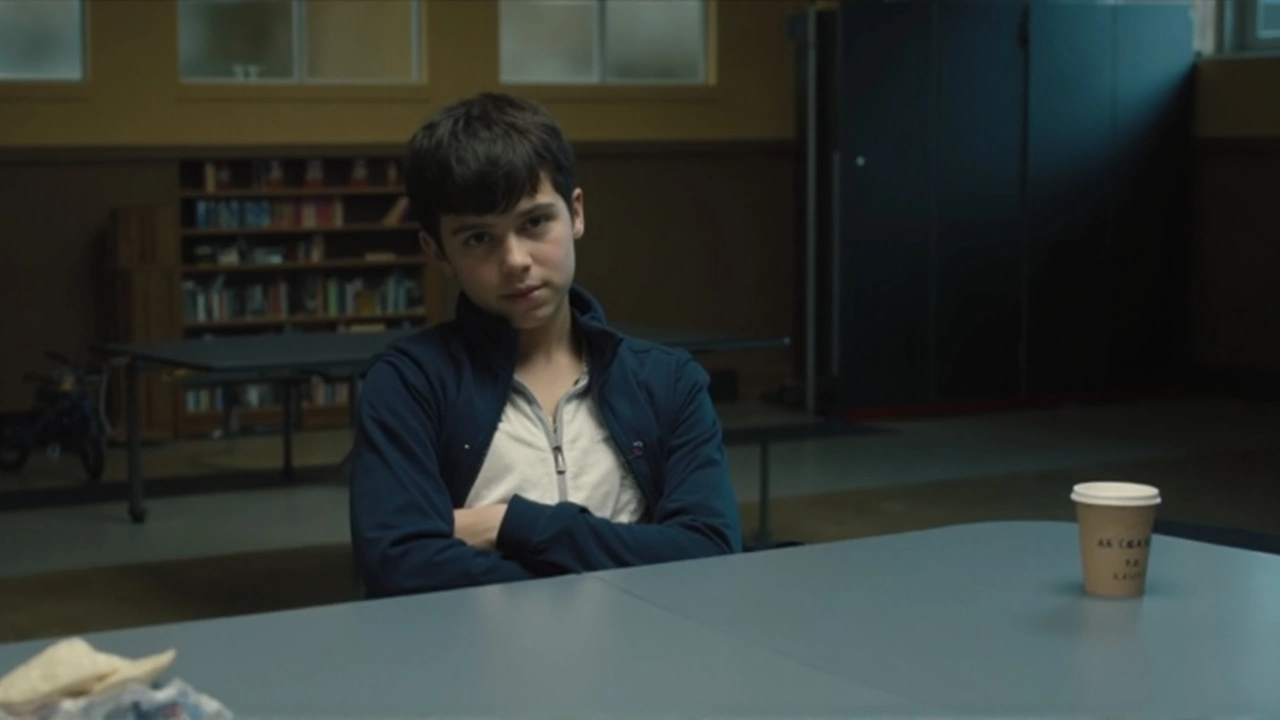Owen Cooper is 15, on his first job, and already in the Emmy record books. The British newcomer has been nominated for Outstanding Supporting Actor in a Limited Series at the 77th Primetime Emmy Awards for Netflix’s Adolescence, where he plays Jamie Miller, a 13-year-old accused of murder. It’s the kind of role that ends careers if it’s mishandled. Instead, it made his.
His nod isn’t just rare; it’s historic for this category. While the Emmys have seen young nominees before—Keshia Knight Pulliam was six when she earned a comedy nod in 1986, and Millie Bobby Brown was 13 for drama supporting actress in 2017—male performers this young in limited-series acting races are almost unheard of. Cooper’s recognition puts him among the youngest performers to compete head-to-head with adults for a major Emmy acting prize.
A record-breaking Emmy nod
Adolescence premiered in March 2025 and slewed away from the courtroom clichés you expect from a story about a child defendant. The series plants viewers in a northern English town where rumor runs faster than procedure, and it asks a hard question: what does justice look like when the suspect is barely a teenager? Cooper’s Jamie is watchful, wary, and, at times, unknowable—exactly the point. The Evening Standard called it “the best debut ever seen by a child actor,” a review line that did as much to push the show into the zeitgeist as any trailer.
Behind that cool front was a meticulous casting strategy. Series co-creator Stephen Graham wanted a complete unknown from the North—no media training, no baggage, just honesty on camera. The production combed drama schools for tapes, kept circling back to one in particular, and asked for more. Teachers there say Cooper “just had something,” a quality that reads as stillness until you realize it’s control. From more than 500 auditions, he landed the part.
Shooting ran from July to October 2024, a tight window for a role that keeps the camera close. For a teenager, that workload means strict on-set guardrails: education time, limited hours, safeguarding teams, and regular breaks. The crew structured days to protect the performance and the kid inside it. What you see on screen—those long silences, the twitch of a jaw when an accusation lands—comes from an environment that allowed him to build Jamie piece by piece.
The performance also works because the series knows when to step back. Adolescence keeps its scale small—classrooms, kitchens, corridors—so the stakes feel personal rather than sensational. It spends time with the weight of rumors, the way a town changes how it looks at you after a headline, and the quiet pressure on families trying to keep their lives from collapsing. Cooper threads through it with a gravity that doesn’t feel learned; it feels lived.
The industry noticed. Before the Emmy nomination, Cooper picked up the Gotham TV Award for Outstanding Supporting Performance in a Limited Series, a win that signaled critics weren’t chalking his impact up to good editing. Gotham juries tend to reward specificity over spectacle, and Cooper’s work is nothing if not precise.

From unknown teen to rising star
Cooper’s path into acting was almost accidental. He watched a Tom Holland film a few years back and decided to try drama classes. That’s not a fairy tale—it’s homework. Northern stage schools are full of kids with promise, and nothing guarantees an audition becomes a job. But teachers flagged him early, and when the Adolescence team called for tapes of their strongest northern actors, his name stayed in the pile. Then it moved into the short list. Then he was in the room.
As the youngest person in a heavy story, he had to find a way to carry serious material without flattening it. The show’s creative team built a support system around him: coaching for the most intense scenes, preparation for media attention, and a set culture that let him restart without embarrassment when the emotional tone wasn’t right. That’s the difference between a child actor and a young actor—agency. Cooper has it.
The aftershocks were immediate. In May 2025, Sam Fender cast him in the music video for “Little Bit Closer,” a high-visibility move that introduced Cooper to a broader pop audience. Next up is BBC Three’s Film Club, a project that leans into youth culture, and then a pivot to period drama as young Heathcliff in Emerald Fennell’s Wuthering Heights, slated for 2026. Fennell’s work tends to be sharp, stylish, and subversive; Heathcliff as a teenager is not a warm-up act. It’s a signal.
There’s a wider industry story here too. The Emmys don’t have a youth category. When young performers break through, they do it on the main stage, alongside veterans. That makes Cooper’s nomination more than a pat on the head. It says the Television Academy saw the craft—the choices, the restraint, the way he lets a scene breathe—and judged it alongside adult supporting turns this year.
It also underlines a lesson casting directors keep relearning: authenticity plays. British TV has leaned into hyperlocal voices lately, from accents to settings, and global platforms have made it easy for those stories to travel. Adolescence is rooted in the North, and it doesn’t sand down its edges. That gave an unknown like Cooper room to feel real rather than “TV-ready.” Viewers can tell the difference.
As for the ceremony, that’s a separate kind of test. Awards-season red carpets and press lines aren’t built for teenagers, and expectations can skew fast. Cooper’s team will likely keep his schedule tight, push back on noise, and make the work the priority. That’s how you turn a breakout into a career: one measured step after another, job by job.
For now, this is the picture: a 15-year-old who took a role most actors would handle with blunt force and chose understatement instead. A production that gambled on an unknown and paid it off. And an Emmy nomination that doesn’t feel like a novelty act—it feels earned. Whatever happens on the night, the industry has its eye on him, and the next projects on his slate suggest he’s not about to blink.
